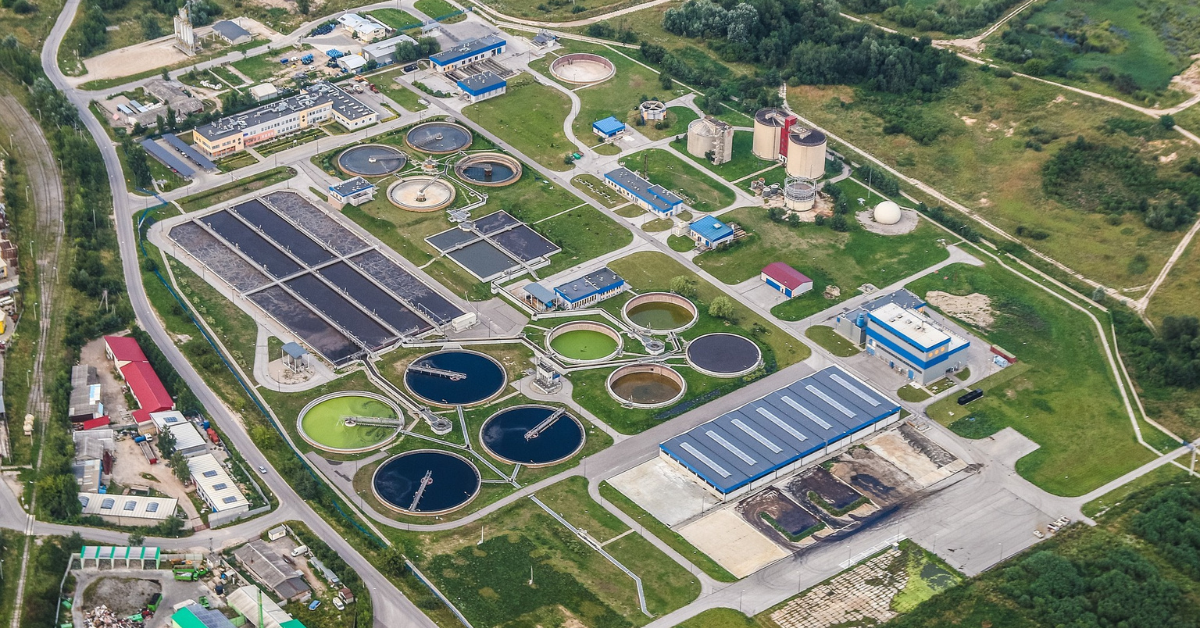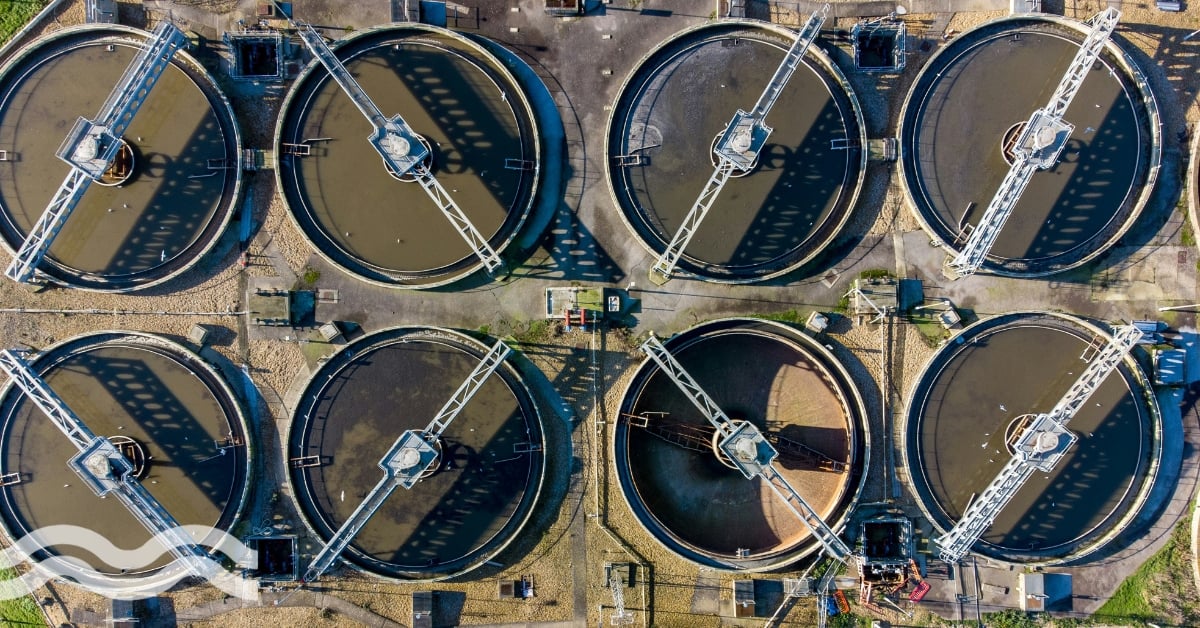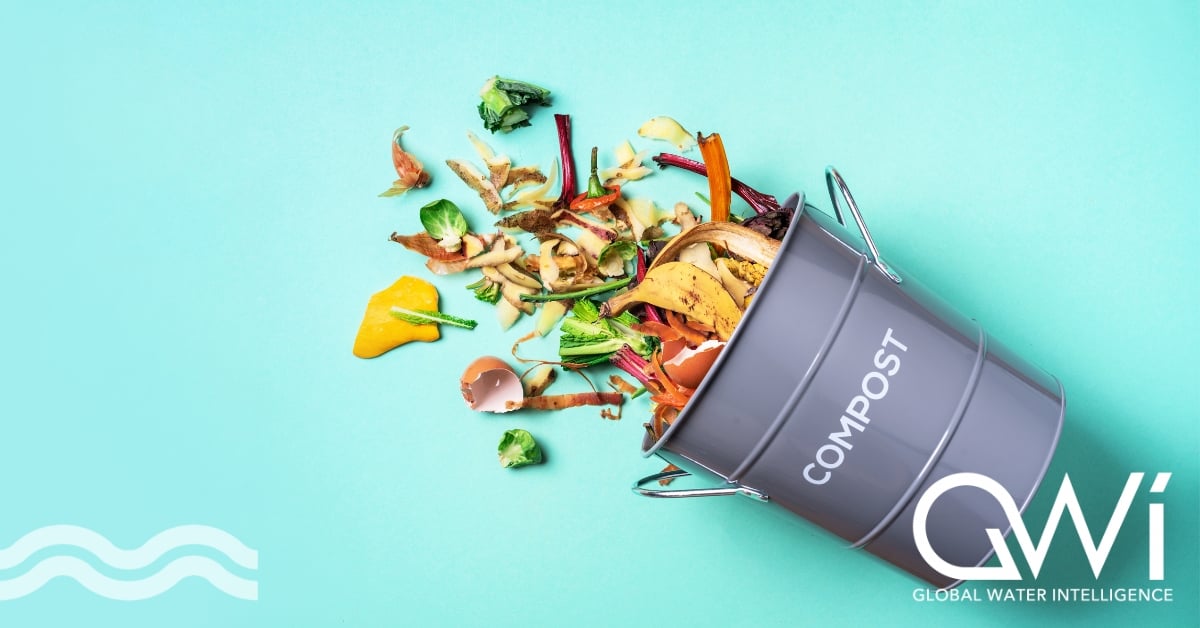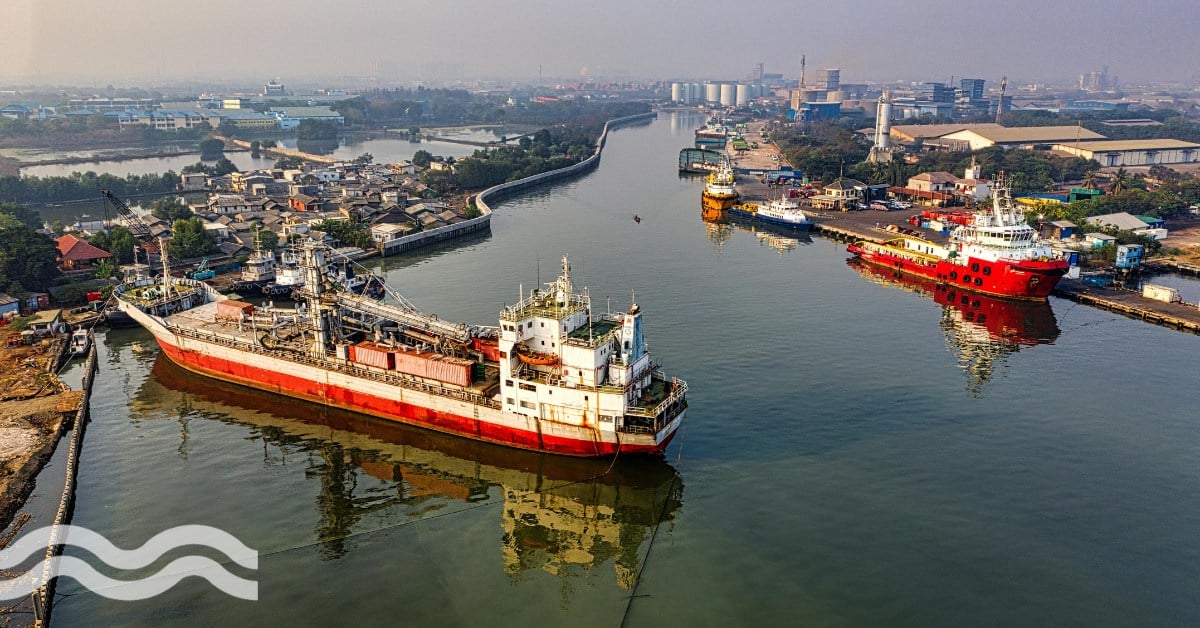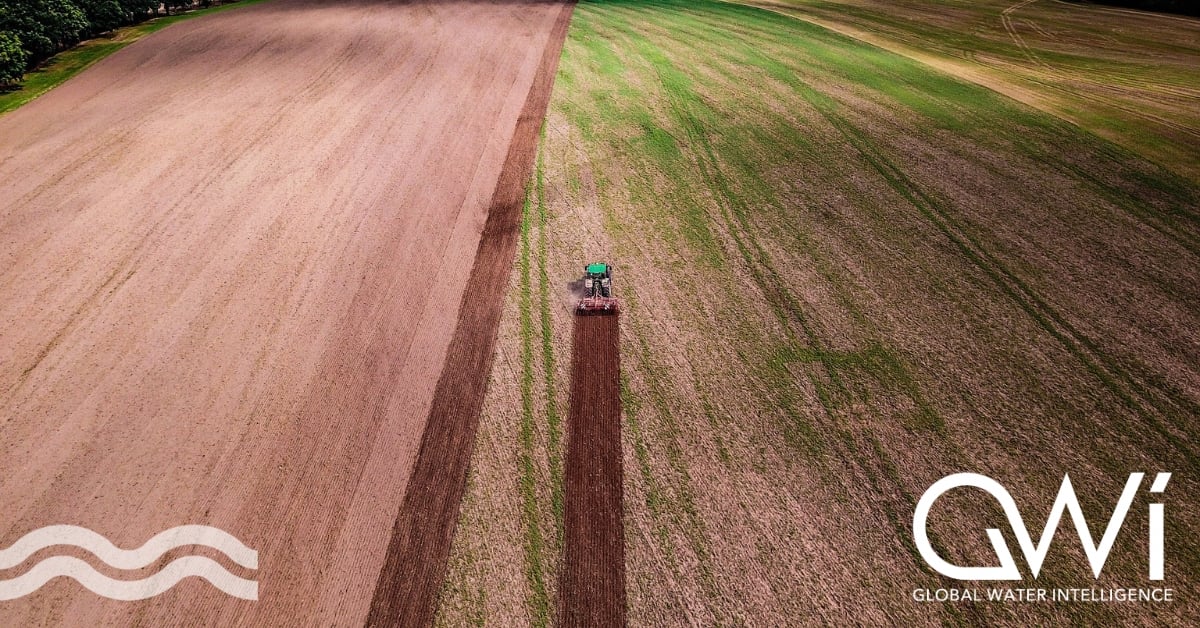Biosolids dryer significantly reduces energy and volume
An innovative patented wastewater sludge drying technology has demonstrated its potential to reduce energy use by 90 per cent and to cut biosolid cake volume and mass by more than half.
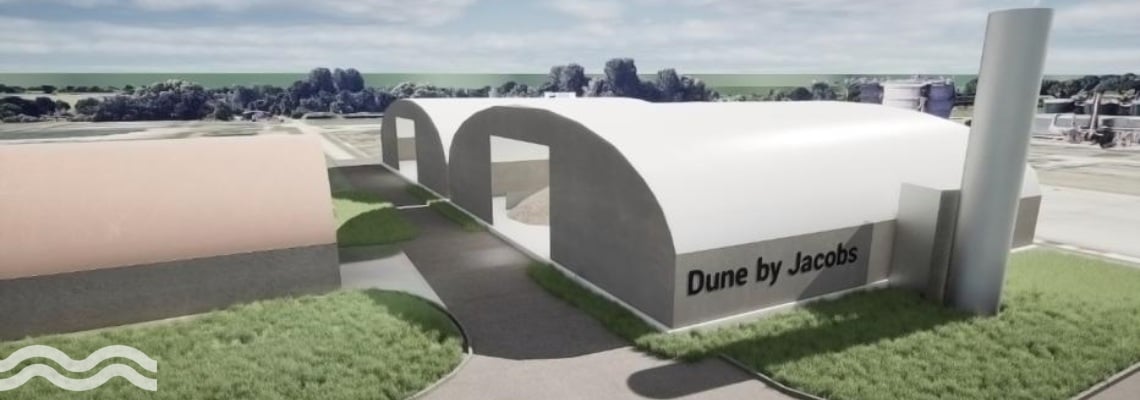
The problem with sludge biosolids
In the UK, approximately four million tons of biosolids are produced annually in wastewater utilities. These biosolids are often two-thirds water, which causes issues such as the release of greenhouse gases. It also adds significant weight and volume for storage and transport.
Traditional disposal techniques include use on farmland, which is coming under significant scrutiny because of concerns over excess nutrients and pollutants.
Biosolid management technology
Water solutions specialist Jacobs trialled its Dune biosolids dryer with Welsh Water and is now developing a project with Severn Trent in the UK.
Dune transforms wastewater-derived biosolids into a dense, soil-like material with a mass and volume less than half those produced by traditional drying methods.
This reduced mass and volume make the resultant cake easier to handle and cheaper to transport and dispose of than other methods, whether through thermal treatment or being applied to land.
Other benefits of using the system include reduced emissions, a smaller storage footprint and lower energy bills. This also means the Dune system can scale with customer requirements. Zac Alexander, senior biosolids technologist at Jacobs, told Aquatech Online: “The footprint depends on the required throughput and other design parameters. In general, the facility size scales linearly with the throughput.”
He added: “Dune strikes a balance between process footprint and energy use, so it doesn’t need the large footprint of windrow drying or the high energy of conventional thermal drying.”
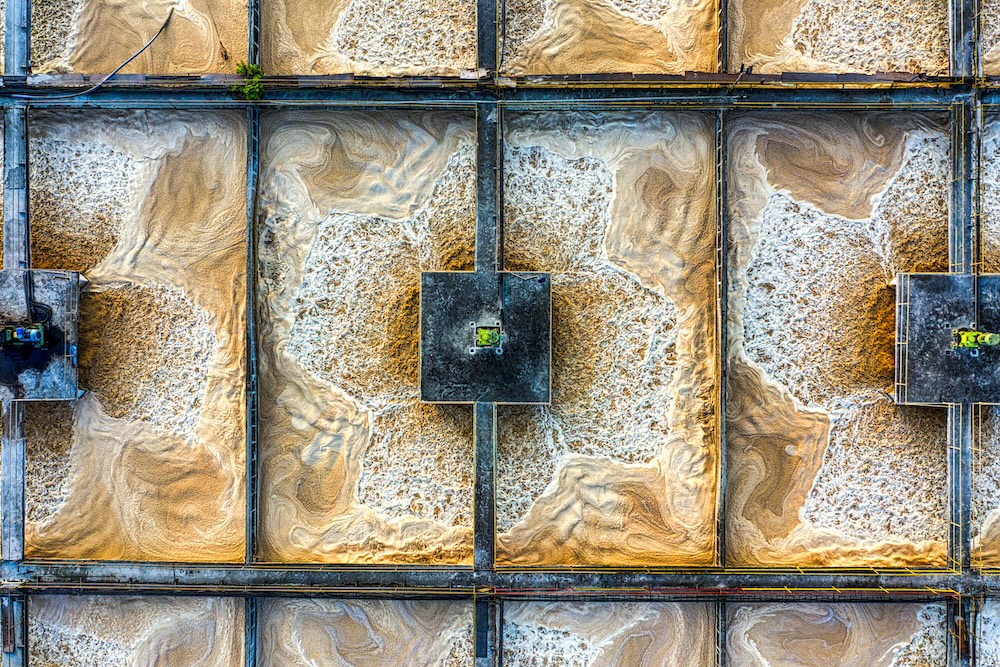
How does the Dune drying system work?
Dune works by aerating dewatered biosolids. This serves to trigger microbiological activity that warms the solids. The heat from this process boosts the natural moisture-carrying capacity of the air, which flows through the dryer and carries moisture away from the solids. This leaves behind dry, granular solids without producing excessive dust.
Alexander explained the process further: “Dune biosolids are similar in consistency to dry garden soil, so it is suitable to combine with other products, such as compost to produce topsoil or horticultural potting material.”
However, the process does not create pellets; instead, the biosolids become a dry cake that helps to avoid unnecessary void space and that can be stacked for easier storage.
According to Jacobs, the system uses 60 kWh per ton of water removed and requires minimal installation and maintenance.
Trial with Welsh Water
Jacobs trialled the technology in a pilot with Welsh Water. Alexander said: “Our work to date has been on existing wastewater treatment plants. We use equipment that is likely to be familiar to operators on these sites. Being on the site also helps with integration with the existing logistics processes.”
This trial demonstrated the following benefits:
- Reduction in air emissions, such as greenhouse gases, ammonia and odours, to address climate targets and emerging Industrial Emissions Directive (IED) requirements.
- A reduction of haulage movements and transport costs.
- Improvement in the public’s general perception of biosolids-to-land due to the odour reduction.
- Improvement in the ability to store the finished product for longer times in less space.
- Generation of a product more suitable for use in landscaping practices beyond agriculture because of the drastic change in physical characteristics of the dried biosolids material.
- Opening of new pathways for downstream processing, such as carbonisation.
- The technology can be applied to any biosolids processed through anaerobic digestion with thermal hydrolysis in England and Wales, which covers over 50 per cent of the biosolids output.
Further trials with Severn Trent
Building on the Welsh Water trial, Jacobs has partnered with Severn Trent to develop sustainable fuels from wastewater sludge.
Combining Dune’s drying technology with pyrolysis and non-thermal plasma treatment, the PyroPlas project was awarded $15.1 million to build and operate a system, over the course of one year, that will produce sustainable aviation and marine fuels from wastewater sludge while removing pollutants such as PFAS and microplastics.
Another aspect being explored in the project is the ability to use the gas produced during the pyrolysis process to be used for fuel or electricity, rather than simply being burned to heat the process itself.
Next steps for Dune
Current work is focused on upscaling the Dune process has building on what has been learnt from the previous trial with Welsh Water.
Most of what we learned so far has enabled technical improvements to further enhance its efficiency. Our current work is focused on upscaling the process.
Finally, Alexander expanded on the next steps for Dune: “We are getting a lot of interest from utilities that are currently sending biosolids to agricultural land, landfill or land reclamation. They are interested in reducing their volume fees, and Dune can halve the volume and mass of biosolids.”
He added: “At the same time, Dune increases readiness for thermal treatment, so we are also getting interest from utilities interested in moving away from landfill or recycling to land altogether. And where there is a market for it, the biosolids are suitable for horticulture and topsoil production.”
